Films with theme "Films about Latin American military dictatorships", sorted by revenue

The Secret in Their Eyes (2009)
, 2h7Directed by Juan José Campanella
Origin Argentine
Genres Drama, Thriller, Crime, Romance
Themes Politique, Films about Latin American military dictatorships
Actors Ricardo Darín, Soledad Villamil, Guillermo Francella, Pablo Rago, Mariano Argento, Carla Quevedo
Retiree Benjamín Espósito is having trouble getting started on his first novel. He pays a visit to the offices of Judge Irene Menéndez-Hastings to tell her about his plans to recount the story of the Coloto case, the one they both worked on 25 years before, when she was his new department chief and he was the federal agent assigned to the case. She suggests he start at the beginning.

Kiss of the Spider Woman (1985)
, 2h1Directed by Héctor Babenco
Origin Bresil
Genres Drama
Themes Seafaring films, Politique, Prison films, Films about sexuality, Transport films, LGBT-related films, Transgender in film, Political films, Films about Latin American military dictatorships, LGBT-related films, LGBT-related film
Actors William Hurt, Raúl Juliá, Sônia Braga, José Lewgoy, Milton Gonçalves, Fernando Torres
The film tells of two very different men who share a prison cell in Brazil during the Brazilian military government: Valentin Arregui, who is imprisoned (and has been tortured) due to his activities on behalf of a leftist revolutionary group, and Luis Molina, a homosexual in prison for having sex with an underage boy.
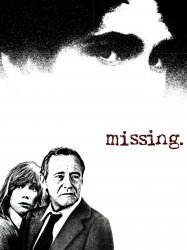
Missing (1982)
, 1h57Directed by Costa-Gavras
Origin USA
Genres Drama, Thriller, Documentary, Historical
Themes Seafaring films, Politique, Transport films, Political films, Films about Latin American military dictatorships
Actors Jack Lemmon, Sissy Spacek, Melanie Mayron, John Shea, Janice Rule, Charles Cioffi
The film opens with Costa-Gavras' statement that the events of the film are true.
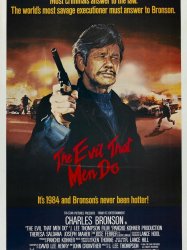
The Evil That Men Do (1984)
, 1h27Directed by J. Lee Thompson
Origin USA
Genres Thriller, Action, Adventure, Crime
Themes Seafaring films, Transport films, Political films, Films about Latin American military dictatorships
Actors Charles Bronson, Theresa Saldana, Joseph Maher, José Ferrer, René Enríquez, John Glover
Holland is a former CIA assassin who lives quietly and peacefully on a West Indies island. He is persuaded out of retirement by the death of Jorge Hidalgo, a friend and dissident journalist. Hidalgo was murdered by Clement Molloch, a Welsh doctor who lives in Guatemala. Molloch has made a science of the practice of torture and sells his knowledge and skills to any government that can pay his price.
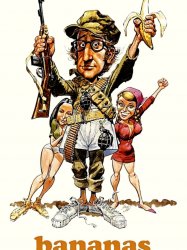
Bananas (1971)
, 1h22Directed by Woody Allen
Origin USA
Genres Comedy
Themes Seafaring films, Monde imaginaire, Films about sexuality, Transport films, LGBT-related films, Political films, Films about Latin American military dictatorships, LGBT-related films, LGBT-related film
Actors Louise Lasser, Woody Allen, Carlos Montalbán, Sylvester Stallone, Dan Frazer, Jacobo Morales
Fielding Mellish (Woody Allen) is the main character, but he does not appear until after the opening credits. The cold open, which featured the assassination of the president of the fictional "banana republic" of San Marcos that completed a coup d'état bringing Gen. Emilio Molina Vargas (Carlos Montalban) to power, sets up the situation that Mellish would enter later in the movie. The scene was in the form of a championship boxing telecast on Wide World of Sports, with Don Dunphy as the host and Howard Cosell as the commentator.

Moon Over Parador (1988)
, 1h43Directed by Paul Mazursky
Origin USA
Genres Drama, Comedy, Romantic comedy, Action, Romance
Themes Seafaring films, Monde imaginaire, Politique, Films about television, Transport films, Political films, Films about Latin American military dictatorships
Actors Richard Dreyfuss, Raúl Juliá, Sônia Braga, Jonathan Winters, Fernando Rey, Regina Casé
The film follows the exploits of film actor Jack Noah (Dreyfuss), who is filming in the small, fictional South American country of Parador when Paradorian President Alfonse Simms suddenly dies of a heart attack. Not wanting to lose his position in power, the president's right-hand man, Roberto Strausmann (Juliá) forces Jack to take the 'role of a lifetime' - that of the dead president, as the two men look so much alike. Jack accepts, eventually winning over the people and even the dead president's mistress, Madonna (Braga). However, when paradise proves to be too boring, Jack needs to find a way to get out while keeping Roberto out of the loop.
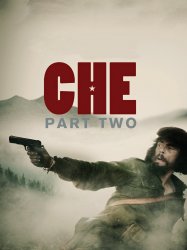
Che: Part Two (2009)
, 2h15Directed by Steven Soderbergh
Origin France
Genres Drama, War, Biography, Historical
Themes Politique, Films about Latin American military dictatorships
Actors Benicio del Toro, Catalina Sandino Moreno, Demián Bichir, Rodrigo Santoro, Óscar Jaenada, Franka Potente
À la suite de la révolution cubaine, Che Guevara est en pleine gloire. En 1964, il se rend à New York pour s'adresser de manière enflammée aux Nations unies, pour affirmer son combat pour le tiers-monde face à la toute-puissance américaine. Il devient ainsi une figure célèbre de la scène internationale. Mais il disparait soudainement. Personne ne sait où il se trouve. De nombreuses rumeurs de sa mort circulent. Mais il réapparait méconnaissable en Bolivie, où il prépare secrètement la Révolution latino-américaine avec ses camarades cubains et quelques Boliviens. Cette campagne montre toute sa détermination et son abnégation. Elle explique en partie le symbole et le héros populaire qu'est resté au fil du temps le « Che ». L'échec de cette révolution marquera sa mort.
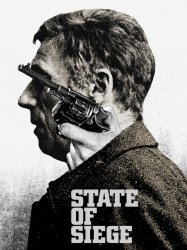
State of Siege (1972)
, 2h1Directed by Costa-Gavras
Origin France
Genres Drama, Thriller, Crime, Politic
Themes Seafaring films, Politique, Transport films, Political films, Films about Latin American military dictatorships
Actors Yves Montand, Renato Salvatori, O. E. Hasse, Harald Wolff, Maurice Teynac, Jacques Weber
À Montevideo, les rebelles d'extrême gauche du Mouvement de libération nationale (Tupamaros) enlèvent Philippe Michael Santore, officiellement fonctionnaire de l'Agence pour le développement international (AID). Alors qu'il se décrit comme un conseiller technique, expert en communication et gestion de la circulation, ses geôliers lui exposent les preuves qu'ils ont recueillies et qui démontrent qu'il agit au nom du gouvernement des États-Unis en tant que conseiller pour la répression et la torture auprès des forces de sécurité de l'Uruguay. L'incapacité de la police et de l'armée à le retrouver menace alors de dégénérer en crise politique.

Kamchatka (2002)
, 1h46Origin Argentine
Genres Drama
Themes Seafaring films, Politique, Transport films, Political films, Films about Latin American military dictatorships
Actors Ricardo Darín, Cecilia Roth, Héctor Alterio, Leticia Brédice, María Socas
The film is seen through the eyes of a ten-year-old boy, Harry (Matías del Pozo), who does not know that Argentina's 1976 coup d'état is impacting his life.

The House of the Spirits (1993)
, 2h20Directed by Bille August
Origin German
Genres Drama, Thriller, Comedy-drama, Romance
Themes Seafaring films, Politique, Films about sexuality, Transport films, Rape in fiction, Rape and revenge films, Political films, Films about Latin American military dictatorships
Actors Meryl Streep, Glenn Close, Jeremy Irons, Winona Ryder, Antonio Banderas, Vanessa Redgrave
Prologue A young woman, Blanca Trueba (Winona Ryder), arrives at a house with an old man and the young woman starts remembering her life.

Under Fire (1983)
, 2h8Directed by Roger Spottiswoode
Origin USA
Genres Drama, War, Action, Historical
Themes Films about writers, Films about journalists, Politique, Political films, Films about Latin American military dictatorships
Actors Nick Nolte, Gene Hackman, Joanna Cassidy, Ed Harris, Jean-Louis Trintignant, Richard Masur
Au Nicaragua en 1979, le journaliste-photographe Russell Price couvre la guerre civile opposant les sandinistes au président Anastasio Somoza. Ses amis, le chef d'antenne Alex Grazier et la journaliste de la radio Claire, l'accompagnent. Au moment où ils arrivent, les sandinistes frappent même jusque dans la capitale, Managua. Au fil des jours, Russell en vient à se poser des questions sur la façon de couvrir cette guerre, lorsqu'il prend conscience de la brutalité de l'armée somoziste vis-à-vis de la population. Lui et Claire sont bientôt approchés par les sandinistes afin de photographier Rafael, leur leader, dont le gouvernement nicaraguayen vient d'annoncer la mort. Rafael est en réalité bel et bien mort, mais les guérilleros veulent démontrer, par une photographie, qu'il est toujours vivant afin de finir la guerre à leur avantage. Après quelques hésitations, Russell accepte et, le lendemain, la photo du chef sandiniste est diffusée dans tout le pays, ce qui déstabilise quelque peu le gouvernement Somoza. Le régime commence à se poser des questions sur la neutralité de la presse. Alex Grazier est bientôt arrêté puis abattu par la Guardia. Russell Price, qui a réussi à photographier l'assassinat, parvient à rendre publiques les photos et le gouvernement américain abandonne toute aide au régime somoziste. Les sandinistes entrent en vainqueurs à Managua et le dictateur fuit le pays.
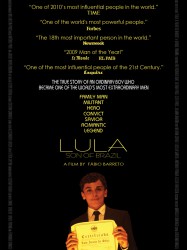
Lula, the Son of Brazil (2010)
, 2h8Directed by Fábio Barreto
Origin Bresil
Genres Drama, Biography, Historical
Themes Seafaring films, Transport films, Political films, Films about Latin American military dictatorships
Actors Rui Ricardo Dias, Glória Pires, Cléo Pires, Juliana Baroni, Milhem Cortaz, Lucélia Santos
The film begins in October 1945 in Garanhuns, a municipality in the countryside of Pernambuco, when Luiz Inácio da Silva, nicknamed Lula, is born as the seventh child of Dona Lindu and Aristides. Two weeks after his birth, Aristides moves to Santos, a coastal city in São Paulo, with Dona Mocinha, a cousin of Dona Lindu. Lindu raises Lula's siblings alone until December 1952, when the family moves to Santos to meet the patriarch. Upon their arrival, Dona Lindu discovers that Aristides had formed a second family with Dona Mocinha.

Colonia (2015)
, 1h50Directed by Florian Gallenberger
Origin German
Genres Drama, Thriller, Horror, Historical, Romance
Themes Films about children, Seafaring films, Politique, Films about religion, Films about sexuality, Transport films, Films about pedophilia, Political films, Films about Latin American military dictatorships
Actors Daniel Brühl, Emma Watson, Michael Nyqvist, Julian Ovenden, Martin Wuttke, Vicky Krieps
Set in 1973, a young couple become entangled in a Chilean military coup at a time when there is much protest on the streets against General Augusto Pinochet. When Daniel is abducted by Pinochet's secret police DINA, Lena tries to find and save her husband. She tracks him to a sealed-off village called "Colonia Dignidad", which presents itself as a charitable mission run by a lay preacher, Paul Schäfer, but is in fact a place from which no one has ever escaped. Lena decides to join the cult to attempt to rescue her husband.

Machuca (2004)
, 2hDirected by Andrés Wood
Origin Chili
Genres Drama
Themes L'adolescence, Films about children, Seafaring films, Politique, Films about sexuality, Transport films, La sexualité des mineurs, Political films, Films about Latin American military dictatorships
Actors Manuela Martelli, Ariel Mateluna, Matías Quer, Aline Küppenheim, Federico Luppi, Francisco Reyes Morandé
The film is from the perspective of Gonzalo Infante, a privileged Chilean boy, during a time period in which the lower classes are politically mobilized, demanding more rights and forcing fundamental change. At the same time the upper middle class, including Gonzalo's own family, grow fearful of the growing socialist movement and plot against the country's elected president, Salvador Allende. Gonzalo's father, while sympathetic to the poor and not part of the right-wing movement, wants to leave the country to Italy, where he frequently travels for work, to avoid the Socialist policies. Sra. Infante is having an affair with a wealthy older gentleman, who gives Gonzalo gifts to keep him quiet. Gonzalo is sometimes bullied by his sister's boyfriend, who is a violent anti-Allende right-winger who uses nun-chucks to intimidate people. The family often buys products off of the black market, due to rationing and shortages.

Death and the Maiden (1994)
, 1h43Directed by Roman Polanski
Origin USA
Genres Drama, Thriller
Themes Seafaring films, Films about music and musicians, Politique, Films about sexuality, Théâtre, Transport films, Rape in fiction, Erotic films, Films about classical music and musicians, Rape and revenge films, Political films, Films about Latin American military dictatorships, Films based on plays, Auto-justice
Actors Sigourney Weaver, Ben Kingsley, Stuart Wilson, Karen Strassman
Paulina Escobar (Weaver) is a housewife married to a prominent lawyer in an unnamed South American country. One day a storm forces her husband Gerardo (Wilson) to ride home with a charming stranger. She is convinced that the stranger, Dr. Miranda (Kingsley), was part of the old fascist regime and that he tortured and raped her for weeks while she was blindfolded. Paulina takes him captive to determine the truth. Despite attempts by both her husband and Miranda to convince her that he is innocent, Paulina is certain that he is the one, and forces her husband to be Miranda's "attorney" in the "trial" she arranges for him.
 Connection
Connection